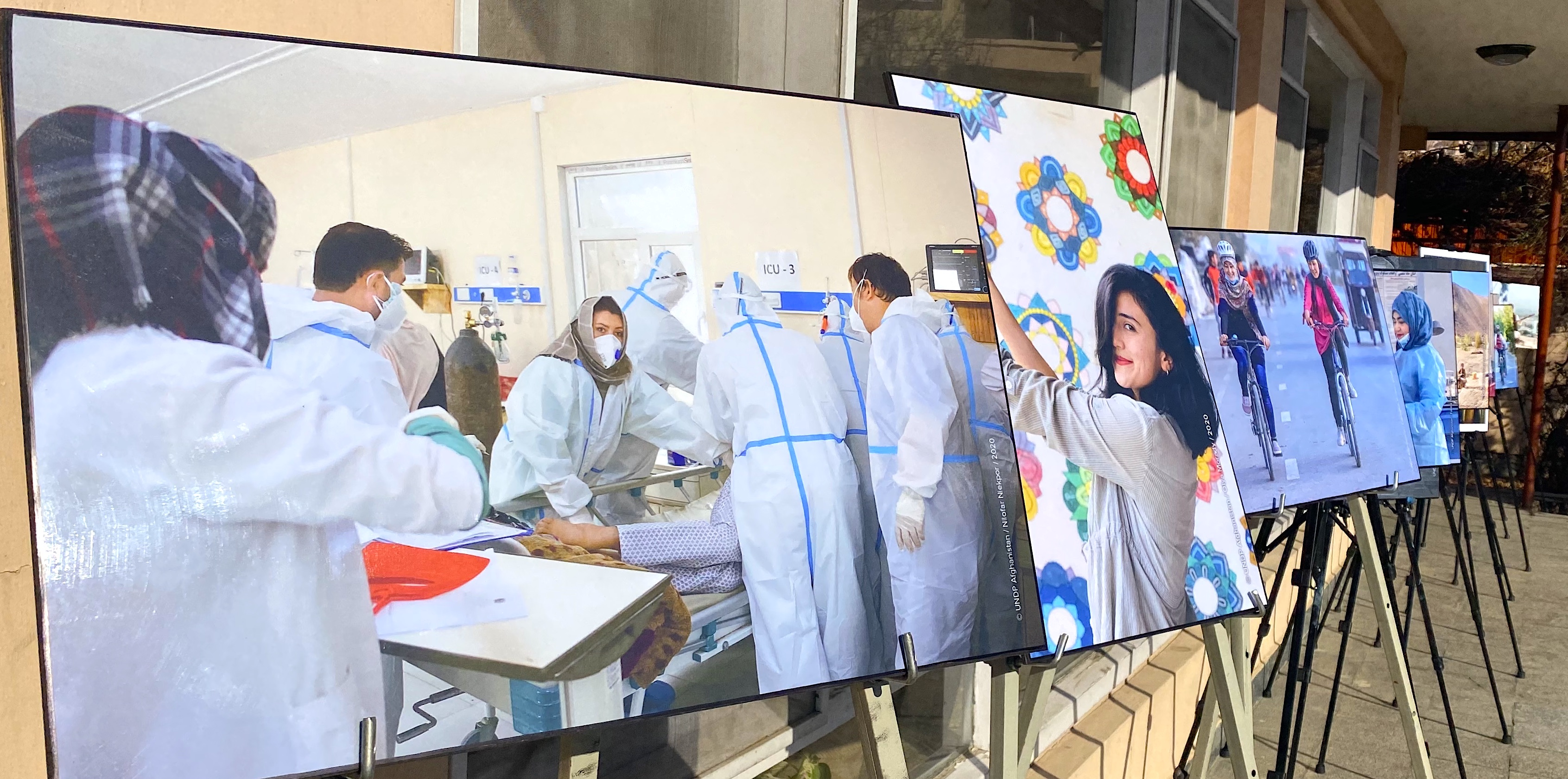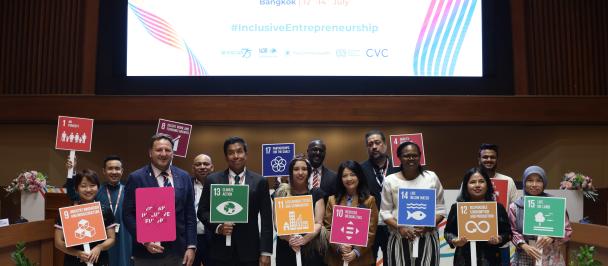by Doina Ghimici, Core Government Functions and Parliament Policy and Programme Specialist at UNDP Bangkok Regional Hub
Digital Transformation, Youth and Parliaments: A New Journey in Asia
December 24, 2020
Images from the ‘Through Her Eyes’ photo exhibition in Kabul.
Magnifying many existing question marks and prompting new ones is just one of the many ways in which COVID-19 pandemic has changed our world in 2020. Both the pandemic and the question marks will accompany us in the New Year. If the pandemic may be gradually defeated by the end of next year, many questions will remain. Among the questions that will likely not fade away is whether we should continue taking political goodwill for granted and assuming that governance systems and elected leaders truly work for the public good.
At a time when the highly valued trust in government—whether democratically elected or not—is dwindling in many places and the need to innovate democratic systems is further highlighted by the advent of technology, prevalence of representative democracy values and governance systems in the post-COVID world, which we started re-imagining and co-creating, should not be taken for granted.
Among the lessons that this pandemic taught us about governance, besides magnifying the importance of empathy and trust, is that accountability, agility and digital technologies are truly vital to navigating complex crises.
Although many governance institutions were tested in regards to business continuity, with very few exceptions, parliaments, which are key sources of accountability, were among those least prepared to handle the unprecedented situation. However, those legislatures that had a higher level of digital readiness and previous experience with innovation were able to adapt to virtual operation in record time, discuss and approve critical legislation and budgetary allocations, hold the government to account and promote safety behaviours and measures indispensible to containing the spread of the virus. Other parliaments remained partially or totally inactive for many weeks or months, failing to deliver their core functions and leaving the executive power virtually unchecked.
In essence the pandemic also highlighted the importance of making parliaments better fit for the future and capable to rebuild public trust. Digital transformation became a critical component of institutional resilience, responsiveness and adaptability in an era in which digital tools and systems are disrupting our ways of working, interacting and governing at incredible speed. The other critical component is meaningful public participation. A digitally apt parliament will be able to hear more voices and bring more people at the decision-making table. This is particularly important at a time when our current models of representation are increasingly questioned and information pollution puts additional pressure on the democratic systems. The benefits of providing public access to accurate information—including through dynamic, informative, and user and mobile friendly parliamentary websites—seem greater than ever.
In an effort to reinvigorate democracy, prior to the pandemic, innovative ways of empowering people not engaged in politics to participate in solving complex policy problems and shaping critical government decisions have been explored in different parts of the world. It is anticipated that deliberative democracy experiments could only become more popular post-COVID.
Enabling online public participation in parliamentary processes (from priorities setting to policy- and legislation-making and holding the government to account for attaining the SDGs) could be a good opportunity to engage Asia’s young generation (who feels increasingly alienated from politics) into formal governance. Undeniably the methods of engagement should be context-tailored and digital engagement platforms should be doubled by purposeful efforts to reach out those not yet digitally connected.
UNDP Bangkok Regional Hub has recently embarked on a journey of supporting digital transformation and forging strong links between parliaments, governments and the vibrant youth population of the region. The initiative includes conducting digital readiness assessments of parliaments in collaboration with Singapore Global Centre for Technology, Innovation and Sustainable Development and working with Pakistan, Bhutan and Timor Leste country offices on piloting a digital platform for youth conversations aimed at informing future parliament and government action. The digital platform under development will enable crowdsourcing of policy ideas, support consensus building on government priorities and help incite new ways of working. It will make use of machine learning for aggregation and analysis of online responses. The digital platform will be powered by pol.is, the open source technology behind EngageBritain initiative, which inspired our regional pilot. A truly exciting new journey!

 Locations
Locations


